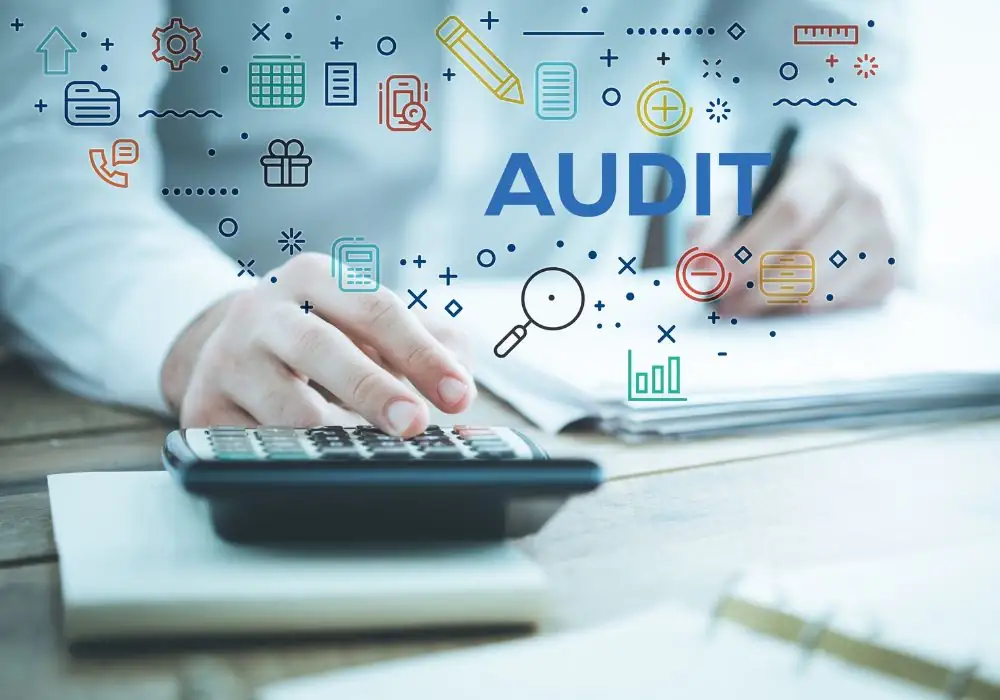Auditing is a word that might make you think of analysts or meticulous inspectors combing through records. But it’s so much more than that.
Auditing serves as the backbone of financial transparency, operational efficiency, and regulatory compliance across industries.
Whether you’re running a business, managing a nonprofit, or overseeing a government agency, understanding such auditing can help you ensure accountability and improve processes.
In this article, we’ll walk you through the key types of auditing, breaking them down into digestible insights. So, without any further ado, let’s tap into the article.
What Is Auditing And Its Types?
Before diving into the types, let’s clarify what auditing means. In a nutshell, auditing involves examining records, processes, or systems to verify accuracy, compliance, or performance.
It’s not just about finding mistakes—it’s about confirming what’s working and identifying areas for improvement.
Audits can cover finances, operations, or even cybersecurity, depending on the focus. Ready to explore the different types? Let’s get started.
1. Financial Auditing
Financial auditing is likely what comes to mind when you hear “audit.” It’s the process of reviewing financial statements to ensure they’re accurate, complete, and compliant with regulations like GAAP (Generally Accepted Accounting Principles) or IFRS (International Financial Reporting Standards).
Conducted by external or internal auditors, financial audits assure stakeholders—think investors, creditors, or regulators—that the numbers add up.
- Why it’s important: A clean financial audit boosts confidence. It signals to stakeholders that your organization’s financial health is transparent and trustworthy.
- Who needs it? Public companies, nonprofits, and even small businesses are seeking loans or investments.
- Key takeaway: Regular financial audits not only ensure compliance but also help you spot discrepancies before they become costly problems.
Ever wondered how businesses catch those sneaky accounting errors? That’s financial auditing at work.
2. Internal Auditing
Internal auditing is like having an in-house detective. Unlike external audits, this type is conducted by employees or hired professionals within the organization.
The goal? To evaluate internal controls, risk management, and operational efficiency. Internal auditors dig into processes, from procurement to payroll, ensuring everything runs smoothly.
- What sets it apart: It’s proactive. Internal audits focus on improving operations, not just checking boxes for compliance.
- Who benefits? Any organization looking to streamline processes or mitigate risks, from corporations to universities.
- Expert tip: Use internal audits to catch inefficiencies early—before they snowball into bigger issues.
Internal auditing isn’t just about finding flaws. It’s about building stronger systems.
3. External Auditing
Imagine an impartial referee. That’s what external auditing offers. Conducted by independent firms, external audits provide an unbiased review of financial statements or operations.
These audits are often required by law for public companies or organizations receiving government funding.
- Why it’s important: External audits lend credibility. Stakeholders trust them because the auditors have no skin in the game.
- Common use case: Public companies must undergo external audits to comply with regulations like the Sarbanes-Oxley Act.
- Something to consider: Choose a reputable auditing firm to ensure thoroughness and independence.
External audits are your organization’s stamp of authenticity. They show the world you’re playing by the rules.
4. Compliance Auditing
Compliance auditing ensures your organization follows the rules—whether they’re set by government regulations, industry standards, or internal policies.
These audits are common in heavily regulated sectors like healthcare, finance, or manufacturing.
- What’s at stake? Non-compliance can lead to fines, legal trouble, or reputational damage.
- Who conducts them? Either internal teams or external specialists, depending on the complexity.
- Pro advice: Stay ahead by regularly reviewing regulations that apply to your industry.
Compliance audits are your safety net. They keep you on the right side of the law.
5. Operational Auditing
Want to make your business run like a well-oiled machine? Operational auditing focuses on evaluating processes and systems to improve efficiency and effectiveness. It’s less about finances and more about how things get done.
- Why it’s important: Identifies bottlenecks, redundancies, or outdated practices.
- Best for: Organizations looking to optimize workflows, from factories to service-based businesses.
- Next steps: Use findings to implement changes that boost productivity without sacrificing quality.
Operational audits are like a tune-up for your organization. They keep everything running smoothly.
6. Information Systems Auditing
In today’s digital world, information systems auditing is a must. This type examines IT infrastructure, cybersecurity measures, and data management to ensure they’re secure and effective. With cyber threats on the rise, these audits are more relevant than ever.
- What’s covered? Everything from software vulnerabilities to data backup procedures.
- Who needs it? Any organization relying on technology, which is pretty much everyone.
- Key insight: A strong IT audit can prevent costly data breaches and system failures.
Your data is your lifeline. Information systems auditing protects it.
7. Tax Auditing
Tax auditing is all about ensuring your organization complies with tax laws and regulations. Conducted by government agencies like the IRS or by independent auditors, these audits verify that tax filings are accurate and complete.
- Why it’s important: Mistakes in tax filings can lead to penalties or audits from tax authorities.
- Who’s at risk? Businesses, nonprofits, and even individuals can face tax audits.
- Expert advice: Keep meticulous records to make tax audits stress-free.
Tax audits might sound daunting. But with proper preparation, you’ll sail through.
8. Forensic Auditing
Think of forensic auditing as financial detective work. It’s used to investigate fraud, embezzlement, or other financial misconduct. Forensic auditors dig deep, analyzing records to uncover irregularities and sometimes even testifying in court.
- When is it needed? Suspected fraud, legal disputes, or insurance claims.
- Who conducts it? Specialized auditors with expertise in accounting and investigation.
- Key benefit: Forensic audits not only uncover wrongdoing but also deter future misconduct.
Fraud doesn’t stand a chance against a thorough forensic audit.
9. Performance Auditing
Performance auditing goes beyond finances to evaluate effectiveness, efficiency, and economy in operations.
Common in government and nonprofit sectors, these audits assess whether resources are being used wisely to achieve goals.
- What makes it unique? It measures outcomes, not just processes.
- Who uses it? Public sector organizations, nonprofits, and grant-funded projects.
- Takeaway: Performance audits help you get the most bang for your buck.
Want to maximize impact? Performance auditing shows you how.
10. Environmental Auditing
With sustainability in the spotlight, environmental auditing is gaining traction. This type assesses an organization’s environmental impact and compliance with regulations like EPA standards or ISO 14001.
- Why it matters: Demonstrates commitment to sustainability and avoids regulatory fines.
- Who needs it? Manufacturing, energy, or any industry with environmental footprints.
- Action item: Use audit findings to implement greener practices.
Environmental auditing isn’t just good for the planet. However, it’s good for business.
FAQs
Internal auditing is conducted by employees or hired teams within the organization to improve processes and controls.
External auditing, on the other hand, is performed by independent firms to provide an unbiased opinion, often for regulatory compliance.
It depends on the type. Financial audits typically happen annually, while internal or operational audits might occur quarterly or as needed. Compliance audits align with regulatory schedules, and forensic audits are conducted when issues arise.
Absolutely. Even small businesses can use audits to improve efficiency, ensure compliance, and build trust with stakeholders. Internal audits, in particular, are cost-effective for identifying areas to save money.
Audit findings lead to recommendations for improvement. For minor issues, you can implement changes internally. Serious issues, like fraud or non-compliance, may require legal action or regulatory reporting.
Not at all. While financial audits are common, operational, IT, environmental, and performance audits address everything from workflows to cybersecurity to sustainability.
Wrapping Up
To sum up, Auditing isn’t just a box to check—it’s a tool to strengthen your organization. From ensuring financial transparency to optimizing operations and safeguarding data, the different types of auditing serve unique but complementary purposes.
So, whether you’re navigating tax laws, investigating fraud, or striving for sustainability, there’s an audit type tailored to your needs.
Start by identifying which audits align with your goals. Then, take action. Conduct regular audits, address findings promptly, and use the insights to drive improvement.
Auditing might seem complex, but with the right approach, it’s a straightforward path to accountability and success.







